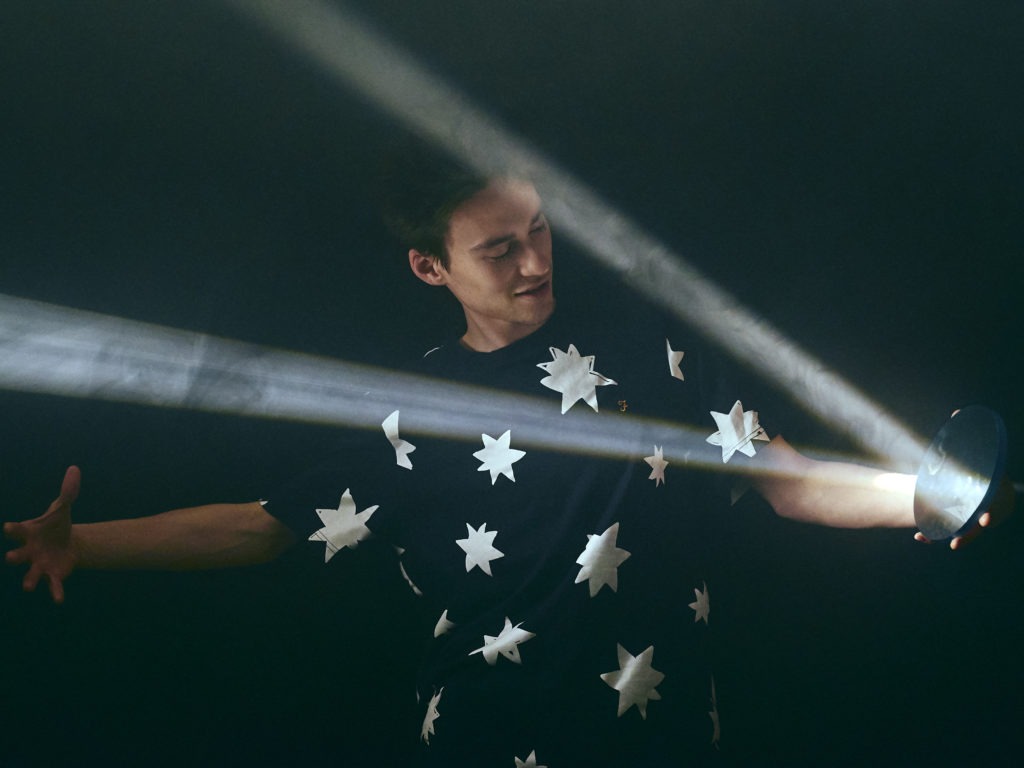
Jacob Collier On Creating The Negative Space Of ‘Djesse Vol. 3’
LISTEN
BY SCOTT SIMON & NED WHARTON
A lot of music these days has to be made in isolation, but Jacob Collier an old-pro at that. The cover of the 26 year old’s debut album, In My Room, was a 3-D shot of Collier surrounded by instruments in the room where he arranged, played, recorded and produced the album — the same room he played music in growing up, in the house in London and where he lives with his mother and sisters and connected with NPR’s Scott Simon.
He says it’s the room where he’s spent most of his hours in quarantine “I’ve been able to get down to some music-making,” he says, “which is the thing I most love to do most in all the world.”

“I’ve deliberately taken a lot of time to do things on my own terms and in my own time,” Jacob Collier says. “I’ve almost deliberately crafted a space where I can keep on changing things musically and keep on experimenting.”
CREDIT: Dyan Jong/Courtesy of the artist
Collier’s new album is called Djesse Vol. 3, part of a four-volume work, and although he’s making music in isolation these days, he traveled to LA, Casablanca, Morocco, Tokyo and Nashville, Tenn., for the project.
“What I was determined to do about two and a half years ago when I set out on this voyage was to, in some way, describe all of the music that I had been listening to for my whole life,” he says. For Collier, that meant exploring everything, collapsing the boundaries between classical, folk, rock, jazz, electronic and gospel. But he wouldn’t categorize his own music with genre labels.
“The way in which I conceived of the whole thing was not particularly based on genre, but based on space,” he says.
In that sense, Djesse Vol. 1 uses the energy of orchestras and choirs to capture “a large, acoustic space,” while Djesse Vol. 2 focuses on the songwriting of “a smaller acoustic space” with folk, jazz and musical traditions from Africa.
“And Djesse Vol. 3, this particular volume,” Collier says, “I suppose it explores much more the idea of almost negative space. It’s like all of the whole scenario has collapsed and you’re in the middle of the night and you’re exploring all of the kind of deep funk within all of the strange weirdness of what it means to stay up late at night and create stuff.”
NPR’s Scott Simon spoke to Jacob Collier about creating his Grammy award-winning arrangement for his cover of “Moon River,” on learning new instruments and dealing with growing fame. Listen in the audio player.















